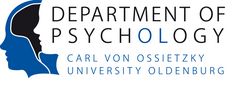Contact
Sekretary
M.Sc. Jacob Abin
Abin Jacob is a PhD Candidate in the Translational Psychology Lab at the University of Oldenburg. His research interests lie in developing methods and technologies to study the brain beyond the lab in real-world contexts. He is particularly focused on neurotechnology and Brain-Computer Interfaces (BCIs) that can be applied meaningfully in everyday life.
Abin completed his Bachelor’s in Engineering in Electronics and Media Technology from Karunya University in 2015 and then spent five years in industry as a Human-Computer Interaction (HCI) and User Experience (UX) specialist. He went on to earn his first Master’s in Behavioural Science from Christ University, India, where he also worked as a research assistant at the Neurophysiology Lab at NIMHANS, and used behavioural methods and EEG to study the effects of chronic stress. He then moved to Germany to pursue his second Master’s in Neuroscience at the University of Oldenburg, where he was co-supervised by Dr Martin Bleichner and Dr Cornelia Kranczioch in evaluating various brain-computer interfaces in natural, real-world setups using mobile EEG.
Project
Abin’s PhD project explores long-term EEG recording beyond the lab, focusing on capturing brain activity over extended periods in everyday routines. His work aims to bridge the gap between neuroscience in the lab and neuroscience in the real world, paving the way for applications in neuroadaptive technologies and BCI that seamlessly fit into daily life.
A critical challenge in real-world neuroscience is the lack of contextual information when recording EEG outside controlled environments. Brain signals alone are often ambiguous without knowing the context in which they occur. As part of his PhD, Dr Martin and he are also developing nEEGlace, a novel wearable device that integrates EEG with additional contextual sensors. This allows brain activity to be linked with contextual markers, making long-term, naturalistic EEG studies more feasible and reliable. This work could open doors to more ecologically valid studies and deeper insights into the real dynamics of the brain in everyday situations.

